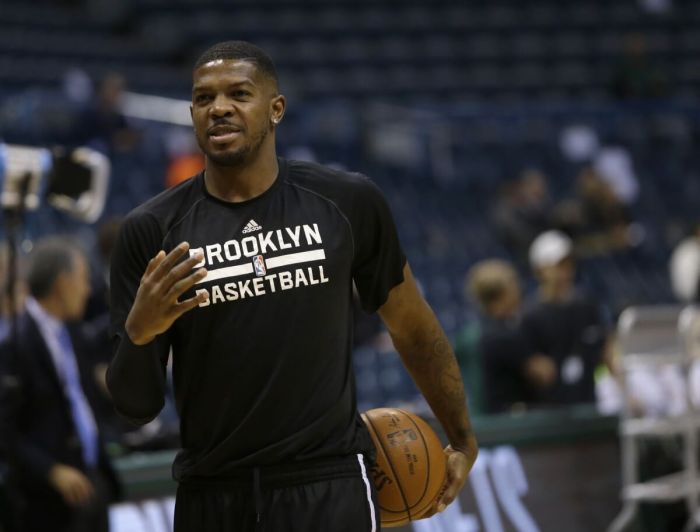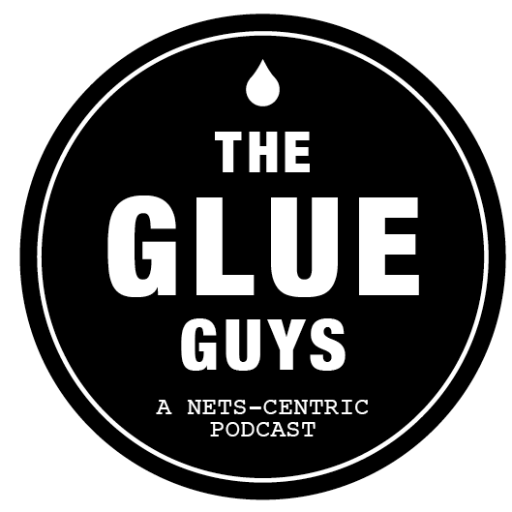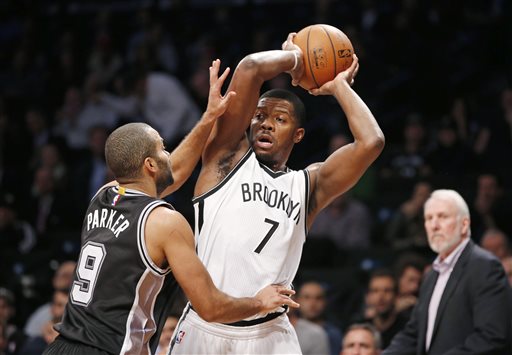Deron Williams is in the middle of what one might call an up-and-down season. Thus far it seems that for every excellent game D-Will plays — like, say, a 34-point explosion against the best defense in the NBA to upset them in overtime — he throws up an equally gut-wrenching performance.
Click the jump for some charts on how erratic Williams’ play has been this season, and just how much the Nets rely on him to win basketball games.
To understand Deron’s up-and-down play, I took a look at his game-by-game Game Scores. Game Score, developed by John Hollinger, is a crude, broad measure of a player’s statistical impact game-by-game.
Sure enough, Deron Williams is a mountain range:
His chart through 20 games is full of peaks and valleys, and not one good stretch longer than two games without a significant dropoff in the third.
As Deron Williams goes, the Nets go. When the Nets see Jekyll Deron, the Nets more often than not win their games. When the Nets see Hyde Deron, if his shot isn’t falling or he’s turning the ball over (either losing it off the dribble or throwing it off the hands of unsuspecting teammates), the Nets drown with him.
To illustrate this point, here’s the same chart, separating Deron’s Game Scores in wins (the blue line) as opposed to losses (the red line):
The results are consistent, and staggering:
- When Deron Williams’s Game Score is over 15, the Nets are 7-2.
- When Deron Williams’s Game Score is under 15, the Nets are 0-11.
- Deron’s average Game Score in wins: 21.6.
- Deron’s average Game Score in losses: 9.3.
- Against teams currently above .500, Deron’s average game score: 10.6.
- Against teams currently below .500, Deron’s average game score: 17.4.
Deron Williams is, by most measures, at least a top-3 point guard in the NBA. When he plays like it, the Nets legitimately look like a playoff team; when he doesn’t, the Nets are the worst team in the NBA. He only seems to play that way against teams that aren’t particularly good; remove the phenomenal outlier against Philadelphia, and 10.6 drops to 9.3.
You can debate until death about the root of Deron’s struggles. You could say his feet aren’t always under him when he shoots off curls. You could say his turnovers are avoidable. You could say his desire to blend in hampers his ability or desire to take over games, or speculate that he’s uninterested in a team that’s an unfinished product. You could say it’s an awkward stretch for an awkward team, and that small sample sizes tend towards wild swings that will eventually work themselves out.
But no matter what you say, one thing remains ironclad: the Nets rely on him showing up to win.


















